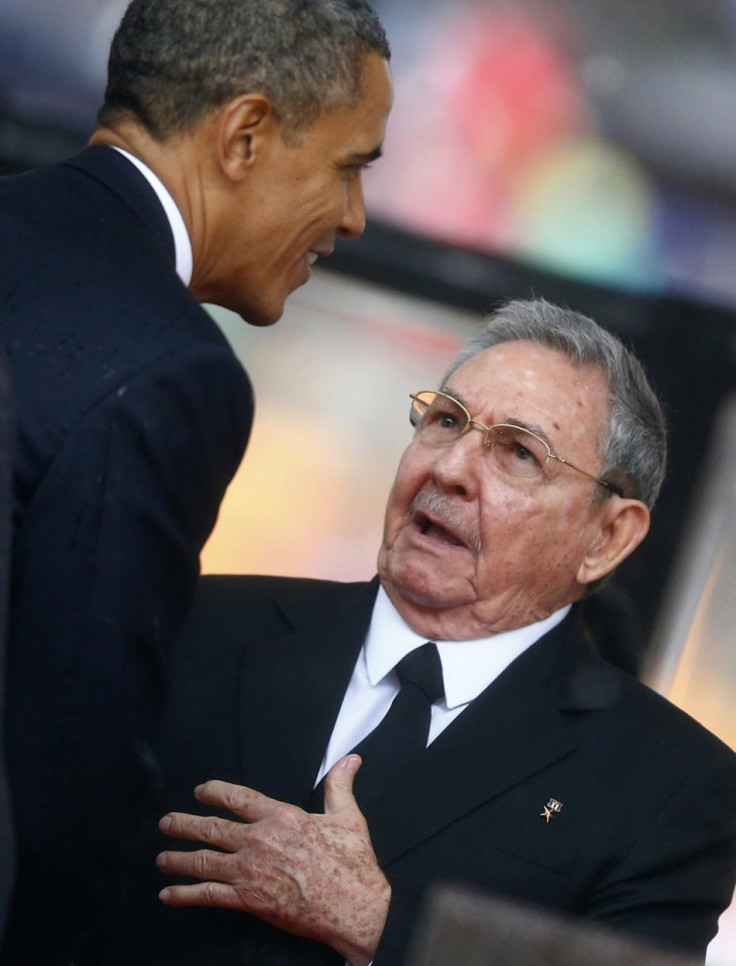Alan Gross release: Cuba's policy overhaul is Obama's intended legacy on US history

The release of American contractor Alan Gross, jailed for five years in Cuba, is a huge step towards normalising relations between the two historic enemies, with rumours that Washington will soon open an embassy in Havana.
The 65-year-old contractor, who was said to be in poor health, was released as part of a prisoner exchange due to be announced by president Barack Obama. Alan Gross is reportedly freed in exchange of three Cubans convicted of espionage in Florida in 2011. The three were among the so-called Cuban Five ordered by the then-president Fidel Castro to spy in south Florida.
Gross was detained while working on a programme funded by the US government agency USAID to smuggle and distribute internet access in Cuba for Jewish communities. He was sentenced to 15 years in prison in 2013. Cuba considers the USAID as an illegal attempt to stage a coup against its communist government.
In court, Gross said that he was a "trusting fool" who was duped by the American government and his company. His lawyer Scott Gilbert told the BBC in August that he is worried about the health of his client, who is suffering from hip pain and can barely see through one eye.
After a recent visit, Gross's attorney described him as toothless and barely able to walk because of arthritis. Earlier in December, Gross's wife Judy said: "Enough is enough. My husband has paid a terrible price for serving his country and community."
A new course
The release of the Maryland native is a sign that Obama's promised new course with Cuba, which is just 90-miles off the Florida coast, is beginning to take effect.
"We are charting a new course toward Cuba" an official told CNN. "The president understood the time is right to attempt a new approach."
Obama's administration has already relaxed restrictions on American travel to the island and held direct negotiations over a range of issues, including immigration and postal service.
The US president has indicated that an overhaul of the Cuban embargo, put in place since John F. Kennedy was president, was on the horizon.
At a 2013 fundraising event Obama said: "The notion that the same policies that we put in place in 1961 would somehow still be as effective as they are today in the age of the Internet and Google and world travel doesn't make sense. We have to find new mechanism and new tools."
Obama's legacy
The embargo was a series of Cold War measures implemented by the US in the 1960s when Fidel Castro came to power. Since then, the American public steadily shifted opinion on the issue with many lawmakers calling for a softer approach towards the regime. Even the New York Times, arguably the bastion of Americanism in the press, took a public stand urging Obama to end of the decades-old economic blockade of Cuba.
After the failures in the Middle East - the rise of Isis and the civil war in Syria - and the crushing of relationship with Russia, Obama is struggling to stamp his mark on the world stage and make history. Obama's chances of leaving a successful foreign legacy depend mostly on his ability to overhaul the painful embargo on Cuba.
The US president is already claiming Myanmar as his own foreign policy success, despite activists complaining about the country's U-turn on democratic reforms.
Cuban president Raul Castro announced that he will speak to his nation about relations with the US.
ZunZuneo
However, the decision will likely alienate many Cuban expatriates and opponents to the Castro regime who live in Florida.
The development is even more significant after an AP investigation revealed that USAID created a Twitter-style social network that was used in a bid to circumvent censorship and undermine the communist regime in Cuba.
The ZunZuneo project - slang for a Cuban hummingbird's tweet - lasted more than two years and attracted tens of thousands of subscribers.
According to information obtained by AP, the US government planned to build a subscriber base through "non-controversial content", then introduce political content when it had reached a critical mass. It was seen as an attempt to trigger a possible "Cuban spring".
ZunZuneo was introduced shortly after the arrest of Alan Gross in 2009.
© Copyright IBTimes 2025. All rights reserved.






















